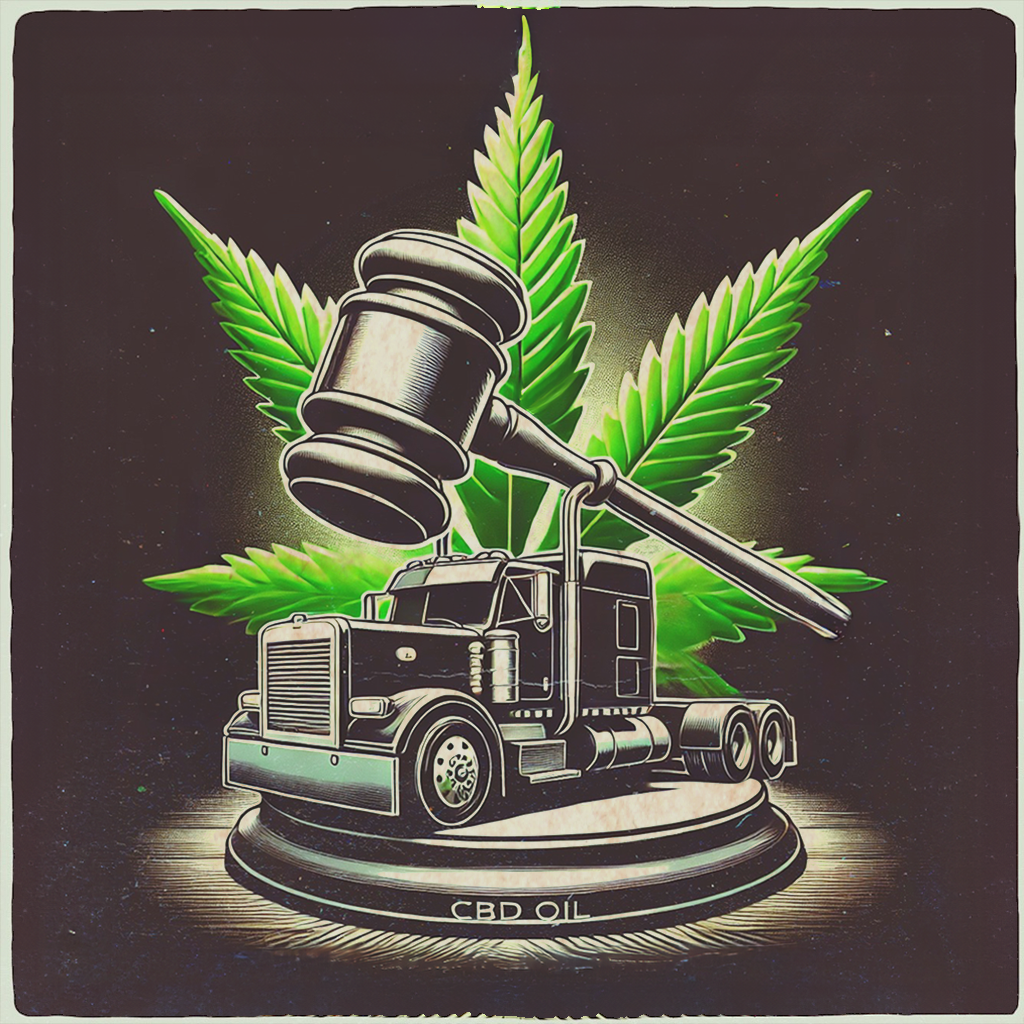A truck driver fired for failing a CBD drug test is challenging the case in the U.S. Supreme Court, potentially reshaping CBD industry regulations.
In what could become a pivotal moment for both the CBD and employment sectors, the U.S. Supreme Court recently heard arguments in a case that could reshape how cannabis-derived CBD products are regulated.
This case involves Douglas Horn, a long-haul truck driver who was terminated after testing positive for THC, the psychoactive component found in cannabis. His legal team argues that the trace THC came from a legal CBD product he used for pain relief—a product he believed to be non-intoxicating and safe.
The case has far-reaching implications, not only for the CBD industry but for employment law and consumer rights as well.
Background: The Legal Quagmire of CBD and THC
Douglas Horn was fired after failing a routine drug test when trace amounts of THC were detected in his system. Like many CBD users, Horn believed the product he was using complied with federal laws and would not cause intoxication.
However, since CBD can sometimes contain trace levels of THC—depending on the manufacturing process and the source of the hemp—Horn found himself caught in a legal gray area. His case is a direct challenge to the CBD company’s responsibility in ensuring their products are free of any THC contamination, and whether they are liable under the Racketeer Influenced and Corrupt Organizations (RICO) Act, a law more commonly associated with organized crime.
The Legal Battle: Fraud or Compliance?
Horn’s legal team claims that the CBD company misled consumers by failing to warn them about the potential for THC contamination, arguing that this constitutes fraud. By invoking RICO, they assert that the CBD company should be held accountable for putting Horn’s livelihood at risk.
On the other side of the courtroom, the CBD manufacturer insists their products meet federal regulations, and they argue that allowing Horn’s lawsuit could open the floodgates for countless similar claims, ultimately harming the growing CBD industry.
The case highlights a conflict between consumer protection and the regulatory stability that the industry desperately needs.
Supreme Court’s Split Deliberations
As the justices heard the arguments, the court appeared divided. Several justices sympathized with Horn, acknowledging the confusion that many consumers face when navigating CBD purchases, particularly in a market where labeling is inconsistent and regulations are still evolving.
However, others expressed concern over the broader implications of siding with Horn, suggesting that a decision in his favor could lead to an overwhelming number of lawsuits against CBD manufacturers, potentially crippling a burgeoning industry.
The case reflects an emerging conflict between protecting consumer rights and nurturing an industry still in its regulatory infancy.
Ripple Effects for the CBD Industry
A ruling in favor of Horn could trigger significant changes within the CBD industry, particularly when it comes to product testing, transparency, and labeling standards. Companies may be forced to adopt more stringent testing practices to avoid THC contamination, which would likely drive up costs for both manufacturers and consumers.
On the other hand, a ruling in favor of the CBD company could maintain the status quo, giving the industry breathing room but also allowing employers to literally fire someone over CBD.
For an industry that has enjoyed rapid growth despite a patchwork of regulations, this case underscores the necessity for clearer guidelines and better oversight. The potential for THC contamination, even in legally compliant CBD products, is a pressing concern for consumers—especially those in fields like trucking where drug testing is mandatory.
The Decision Ahead
As the CBD market continues to expand, the stakes for this case couldn’t be higher. The Supreme Court’s ruling, expected later this year, will likely set a precedent that will influence not only future lawsuits but also the direction of regulatory reforms for CBD products.
If Horn prevails, it could usher in a new era of consumer protections, while a decision favoring the CBD company might reinforce current regulatory practices, for better or worse.
Looking Forward: What’s at Stake for Consumers and Industry
This case has illuminated a critical issue in the CBD industry: the balance between consumer rights and corporate accountability.
As more Americans turn to CBD for pain relief, anxiety management, and other health issues, they need confidence in the products they’re using. A clear regulatory framework—one that prioritizes transparency and consumer protection—will be essential moving forward.
Stay tuned as the legal system grapples with this complex intersection of employment law, drug testing, and the rapidly growing CBD industry. The ruling will not only determine the outcome for Douglas Horn but could redefine the legal parameters for CBD use nationwide.

***
Trap Culture is the ultimate destination for cannabis enthusiasts who want to experience the best of Arizona’s cannabis culture. Whether you are looking for the hottest cannabis-friendly events, the latest news on debunking negative myths about marijuana, trends in the industry and exclusive, limited-edition products from the top brands in the market, Trap Culture has you covered. Visit our website to learn more about our events, our blog, and our store. Follow us on social media to stay updated on the latest news and promotions. Join the Trap Culture family and experience the most immersive and engaging cannabis-friendly social events in Arizona.


